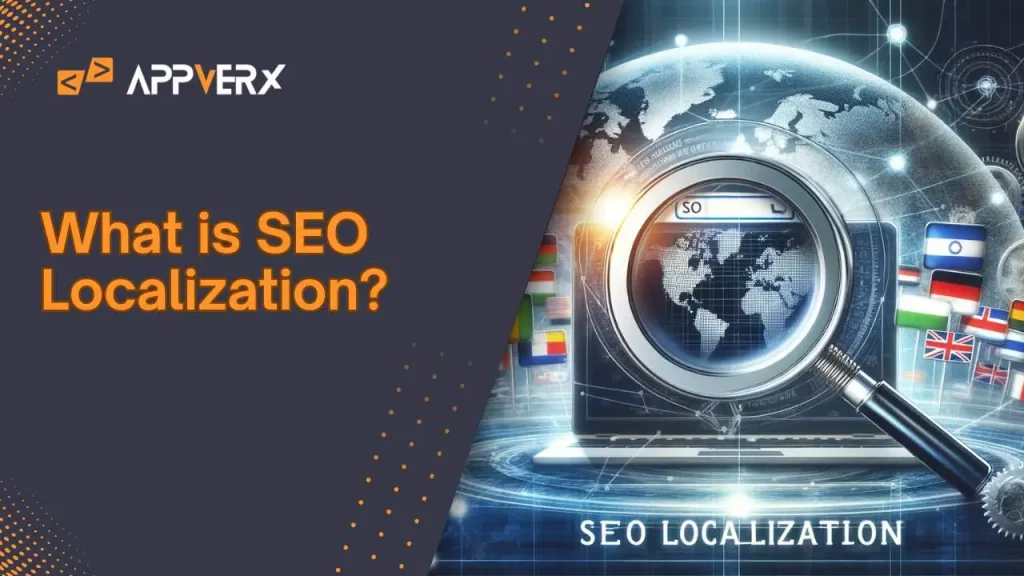Reaching a global audience is no longer a luxury but a necessity in today’s fast-paced digital landscape. Businesses striving for international success must embrace the concept of SEO localization, a powerful strategy that goes beyond traditional search engine optimization. This article will explore the depths of Local SEO, from its definition to the intricacies of its implementation, all while emphasizing the significance of speaking the language of your target audience.
Understanding SEO Localization
Definition and Concept
Content translation is one of many aspects of SEO local. It involves adapting online content to suit the preferences and behaviors of a specific locale. This includes language nuances, cultural sensitivities, and region-specific search trends.
Global Online Presence and Localization
There is no one-size-fits-all approach to building a global online presence in an interconnected world. A localized search engine optimization campaign engages diverse audiences and fosters understanding and connection.
Elevate your online presence within your community with our tailored Local SEO Services. Connect with customers in your area by optimizing your website for local searches and outshine the competition. Explore our Local SEO Services and begin your journey to regional digital dominance today.
Key Elements
Language Considerations in SEO
Choosing the correct language for your target audience is foundational. We’ll delve into how linguistic choices impact SEO and user engagement.
Cultural Nuances and Their Impact
Understanding the cultural context is vital. This section will explore how cultural nuances affect SEO strategies and the user experience.
Local Keyword Research and Implementation
Effective Local SEO relies on in-depth local keyword research. Learn how to identify and seamlessly integrate region-specific keywords.
Benefits of SEO Localization
Enhanced User Experience
Discover how SEO localization contributes to a user-friendly experience, building trust and loyalty among diverse user bases.
Increased Website Traffic and Engagement
Localized content attracts more traffic from specific regions. We’ll discuss how tailored content enhances user engagement.
Improved Search Engine Rankings
Find out how SEO localization can give businesses a competitive edge by directly influencing search engine rankings.
SEO Localization Strategy: A Deep Dive
Customizing Content for Different Regions
Tailoring your content for specific regions is a crucial aspect. We’ll provide insights into crafting region-specific content that resonates.
Tailoring Meta Tags and Descriptions
An SEO campaign can only be successful with meta tags and descriptions. Learn how to optimize them for different locales effectively.
Importance of Localized Backlinks
Find out why it’s so important to build backlinks that are specific to a region for SEO success.
Challenges in Implementing SEO Localization
Balancing Global and Local Strategies
Global and local strategies need to be balanced, but finding the right balance is difficult. We’ll discuss strategies to harmonize both approaches.
Overcoming Language Barriers
Language can be a barrier or a bridge. Learn how to navigate language challenges in SEO localization.
Navigating Cultural Sensitivity
Avoiding cultural missteps is crucial. Understand the nuances of cultural sensitivity in SEO localization.
Success Stories in Local SEO
Case Studies of Businesses Benefiting
An example of how SEO localization has helped businesses thrive. Extract lessons from their success stories.
Lessons Learned from Successful Implementations
What can businesses learn from those who have successfully implemented localization? We’ll explore actionable insights.
Tools and Technologies for SEO Localization
SEO Tools for Global Keyword Analysis
Discover tools to analyze global keywords to fine-tune your SEO localization strategy.
Translation and Localization Tools
Explore the latest translation and localization tools that streamline the content adaptation process.
Geographic Targeting Features in Search Engines
How do search engines help in geo-targeting? We’ll explore features that assist in reaching the right audience.
Future Trends in SEO Localization
Evolving Technologies
Find out how the future of SEO localization is being shaped by evolving technologies.
Anticipated Changes in Search Engine Algorithms
What changes can we expect in search engine algorithms? Get a head start on SEO localization by learning how to future-proof it.
Best Practices for Local Language SEO
Creating Region-Specific Landing Pages
Landing pages tailored to specific regions can significantly impact user engagement. We’ll guide you through best practices.
Utilizing Hreflang Tags Effectively
For international search engine optimization, hreflang tags can be a powerful tool. Learn how to use them effectively to signal language and regional targeting.
Monitoring and Adapting to Local Trends
The digital landscape evolves. Make sure your SEO strategy adapts to local trends by staying attuned to them.
Common Mistakes to Avoid in SEO Localization
Literal Translation Pitfalls
Why literal translation can be a pitfall and how to avoid it, learn from common mistakes in language adaptation.
Ignoring Cultural Context
Cultural context matters. Understand the consequences of overlooking cultural nuances in SEO localization.
Inadequate ongoing optimization efforts
Optimizing your website for search engines is an ongoing process. Discover why neglecting continuous optimization efforts can hinder success.
Measuring the Success of SEO Localization
Key Performance Indicators
What metrics indicate the success of SEO localization? We’ll explore key performance indicators for regional campaigns.
Analytics and Reporting for Regional Campaigns
How to effectively analyze and report on the performance of localized SEO campaigns.
Balancing Global and Local SEO Strategies
Integrating Efforts Seamlessly
Achieving harmony between global and local SEO strategies is essential. Discover ways to integrate efforts seamlessly.
Ensuring a Consistent Brand Voice Across Regions
Maintaining a consistent brand voice builds trust. Learn how to ensure uniformity while catering to diverse audiences.
Also Read: Link Building Strategies
Conclusion
In conclusion, SEO localization is the linchpin for businesses aiming to establish a robust global online presence. By understanding and implementing the nuances of different regions, companies can attract diverse audiences and foster meaningful connections. Embracing local SEO is no longer a choice. It’s a strategic imperative as technology evolves and the digital landscape expands.
FAQs
What is the primary goal of SEO localization?
SEO localization aims to tailor online content to specific locales, ensuring it resonates with local audiences and enhances user experience.
How does cultural sensitivity impact SEO strategies?
Cultural sensitivity is vital in SEO localization to avoid missteps that may alienate or offend local audiences, impacting the strategy’s effectiveness.
Why is ongoing optimization crucial in SEO localization?
Ongoing optimization ensures that the localized content stays relevant and practical, adapting to changes in search algorithms and user behaviors.
What tools are recommended for global keyword analysis in SEO localization?
Tools such as SEMrush, Ahrefs, and Google Keyword Planner should be used to conduct a comprehensive global keyword analysis.
How can businesses balance global and local SEO strategies effectively?
Businesses can balance global and local SEO strategies by customizing content for different regions, utilizing hreflang tags, and integrating efforts seamlessly.
What are the key performance indicators for measuring SEO localization success?
Key performance indicators include increased website traffic from specific regions, improved search engine rankings, and enhanced user engagement.


